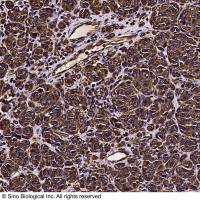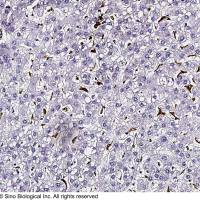Tracking Adoptively Transferred Antigen-Specific T-Cells With Peptide/MHC Multimers
互联网
812
Advances in immunological monitoring provide the means to track tumor antigen-specific cytotoxic T-lymphocytes (CTL) in humans after adoptive transfer with greater specificity and sensitivity than before. Novel tools can be used not only to detect antigen-specific CTL, but also to evaluate the function and phenotype of individual T-cells. Peptide major histocompatibility complexes (MHC) class I multimeric complexes are proving invaluable as fluorescent reagents for tracking of antigen-specific T-cells. The multimeric complex is constructed of four synthetic and biotinylated peptide-loaded MHC molecules, which are linked by a fluorochrome-labeled streptavidin molecule. In contrast to “indirect” assays such as limiting dilution analysis (LDA) or 51 Cr release assays requiring in vitro stimulation, this method allows direct monitoring of very low numbers of peptide-specific T-cells without the need for in vitro sensitization. By combining the use of multimers with anticytokine antibodies, a more detailed picture of the tracked T-cell can be obtained. This chapter summarizes the application of these protocols to monitor ex vivo the frequency and functional activity of tumor-specific CTL after adoptive transfer. Furthermore, it details potential problems interfering with correct staining and provides guidance for interpretation of results.









